Pulitzer winners inspire journalists to chase the truth
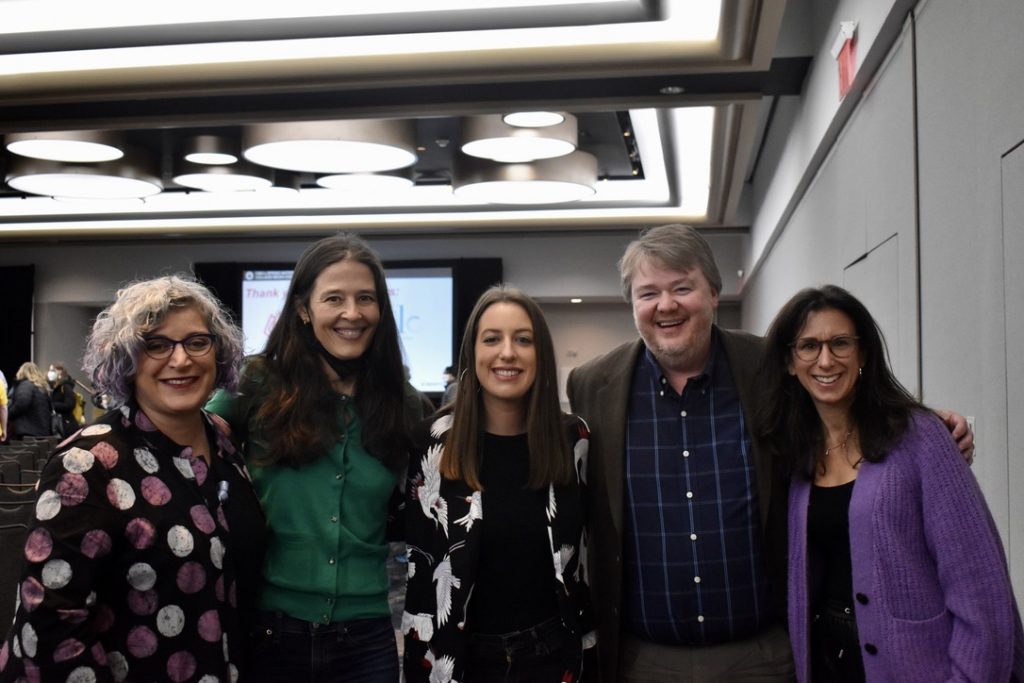
From Right to Left: SPLC Executive director Hadar Harris, Megan Twohey, Elena Eberwein, Christopher Whitley, Jodi Kantor.
By Elena Eberwein
Pulitzer-winning New York Times investigative reporters Jodi Kantor and Megan Twohey made it clear how they feel about student journalism.
“We’ll just tell you right off the bat, we think that your jobs are harder than ours,” said Kantor to the ballroom audience. A surprising statement from a person whom most of the hundreds of young journalists who attended the keynote event hope to model their careers after.
Kantor and Twohey’s new publication ‘Chasing the Truth’ is an adaptation of their book ‘She Said’, that serves as a guide to young investigative journalists. The book not only describes the investigation but what this type of reporting means when seeking the truth in systems of corruption and power. Kantor and Twohey discussed the process of their investigation into Harvey Weinstein as keynote speakers at the College Media Association spring convention on Friday morning.
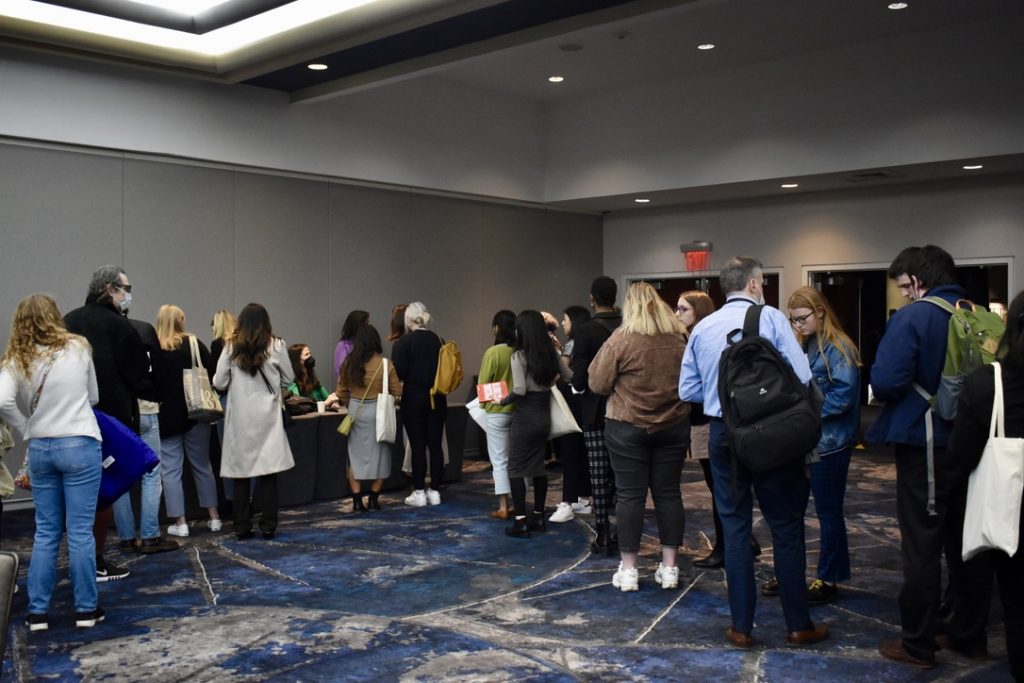
A line forms for a book signing of ‘Chasing the Truth’ by Jodi Kantor and Megan Twohey.
In the years since the Harvey Weinstein investigation was published, the #MeToo movement has gained feverish traction, creating a moment that has empowered victims of sexual crimes to use their voices. Student journalists have been inspired to tackle these investigations on campus.
The Student Press Law Center is a non-profit that sponsored the keynote event and works to provide student journalists with free information, training, and legal counsel for their stories. The Student Press Law Center has fielded more #MeToo related requests in the past few years than ever before, said their Executive Director Hadar Harris.
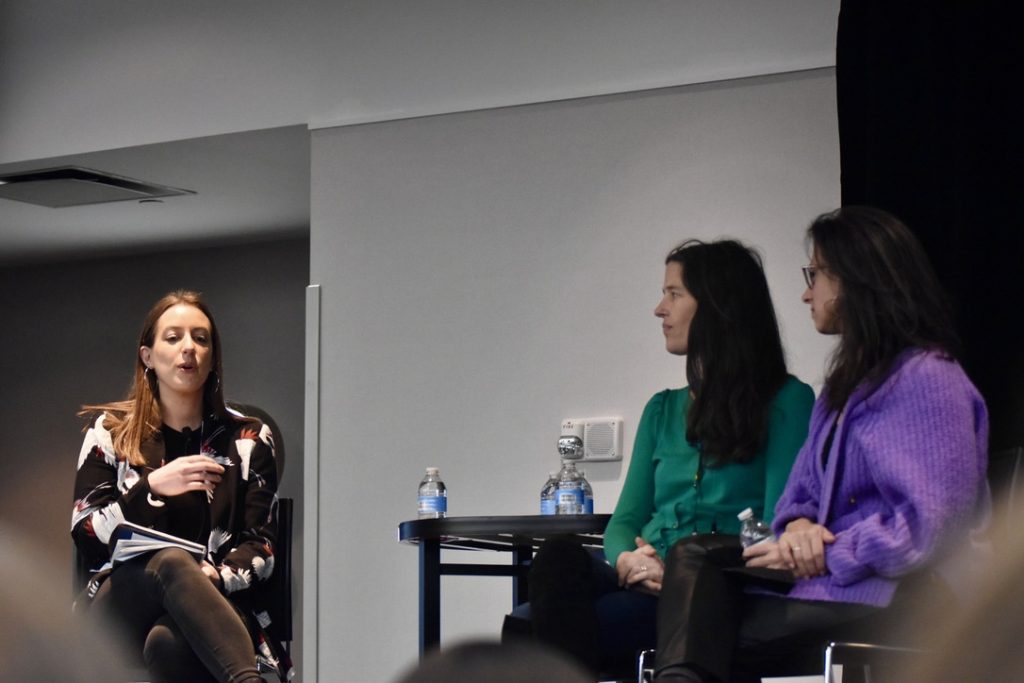
Student journalist Elena Eberwein interviews Megan Twohey and Jodi Kantor at the College Media Association Spring 2022 Convention Friday March 11.
Finding sources is the first step in an investigation like this. Kantor discussed the importance of crafting the right email and perfecting her phone pitch to field sources. Twohey, who had previous experience reporting on serious sex crimes, wound up helping Kantor come up with the perfect opening line.
“I can’t change what’s happened to you in the past. But if we work together, we may be able to put it to some productive use,” said Kantor. She would lead with this line that finally felt like it summed up something she had always felt about journalism.
Convincing sources to go on the record was a whole different process. Twohey said after 3 months of reporting, she and Kantor had a meeting over a drink in a dark quiet bar with their editor Rebecca Corbett. Kantor and Twohey had notebooks full of accounts of women alleging the same pattern of abuse by Weinstein.
Corbett asked if anybody’s account was on the record. The answer was no. Corbett told them they didn’t have a publishable story.
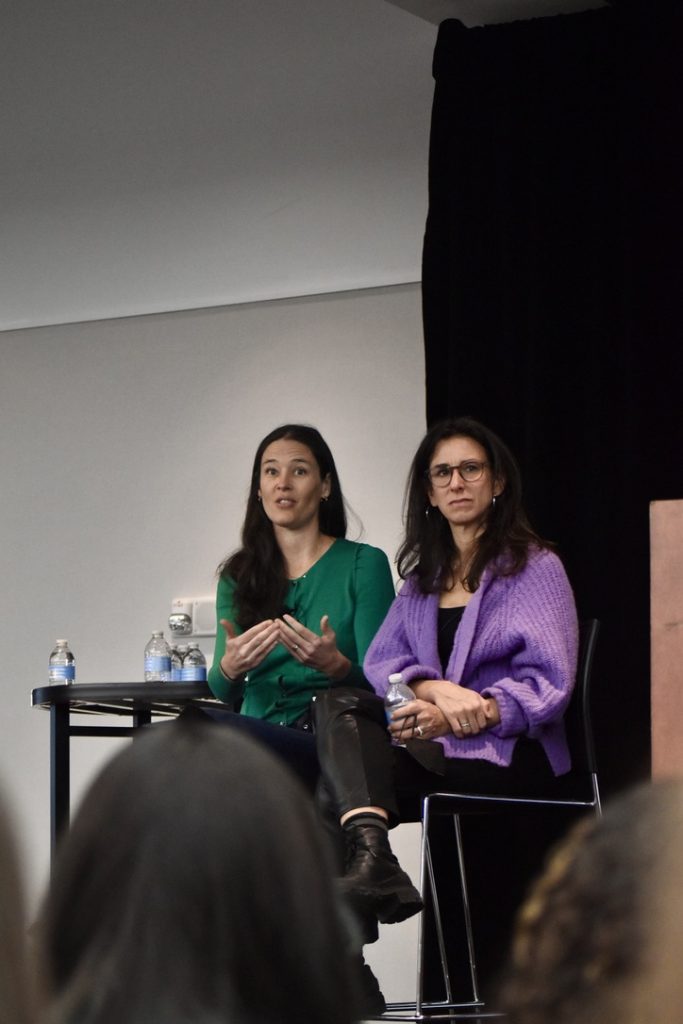
Megan Twohey and Jodi Kantor answer student journalist questions about their investigation into Harvey Weinstein.
While they had this fantasy of the women they’d spoken to having a “moment where they kind of grabbed hands and jumped on the record together,” it was 3 months into the investigation and hadn’t happened, said Twohey.
This is when they began to follow a financial trail of secret settlements and internal company documents that alleging wrongdoing and sexual misconduct, said Twohey. These documents were used as evidence for their story and to show their sources that there was a pattern and they were not alone.
Kantor and Twohey were thorough and fair through their whole reporting process, both with their sources and Weinstein. “Ultimately what you’re trying to do is serve the truth, and that is what protects your sources more than anything,” said Kantor.
“Libel is the big risk,” said Mike Heistand, Senior Legal Counsel to the Student Press Law Center at a workshop on #MeToo reporting. There are problems and limitations when using anonymous sources, and someone who is accused of a crime has to have the chance to respond to any allegations.
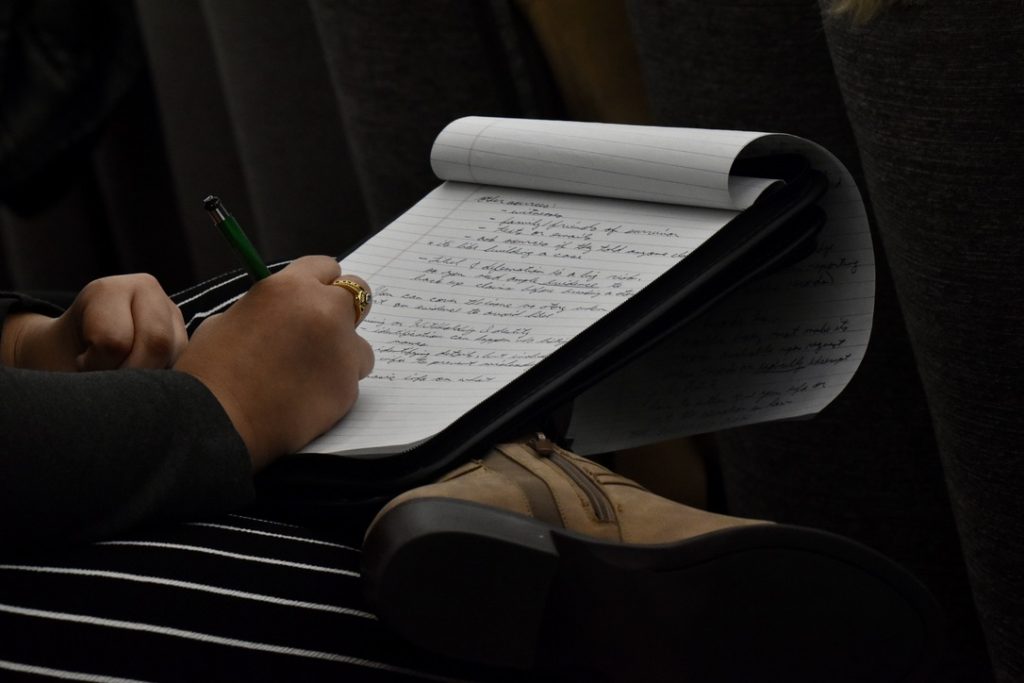
A student takes notes during the Student Press Law Center’s workshop on reporting on #Metoo.
Kantor discussed the process of giving Weinstein the time to respond to the allegations in the piece before publication. She said, “The alleged wrongdoer needs a chance to respond. These are serious accusations. They wreck people’s careers, they ruin reputations, they turn their lives upside down.”
The story was a huge task to accomplish from fielding sources, convincing sources to go on the record, sourcing documents, and going back and forth with Weinstein himself. The challenge of it was what drew Kantor in. “So other journalists tried the Weinstein story before us and failed,” she said, “We knew about that when we started, and to be honest, that made it more attractive.”
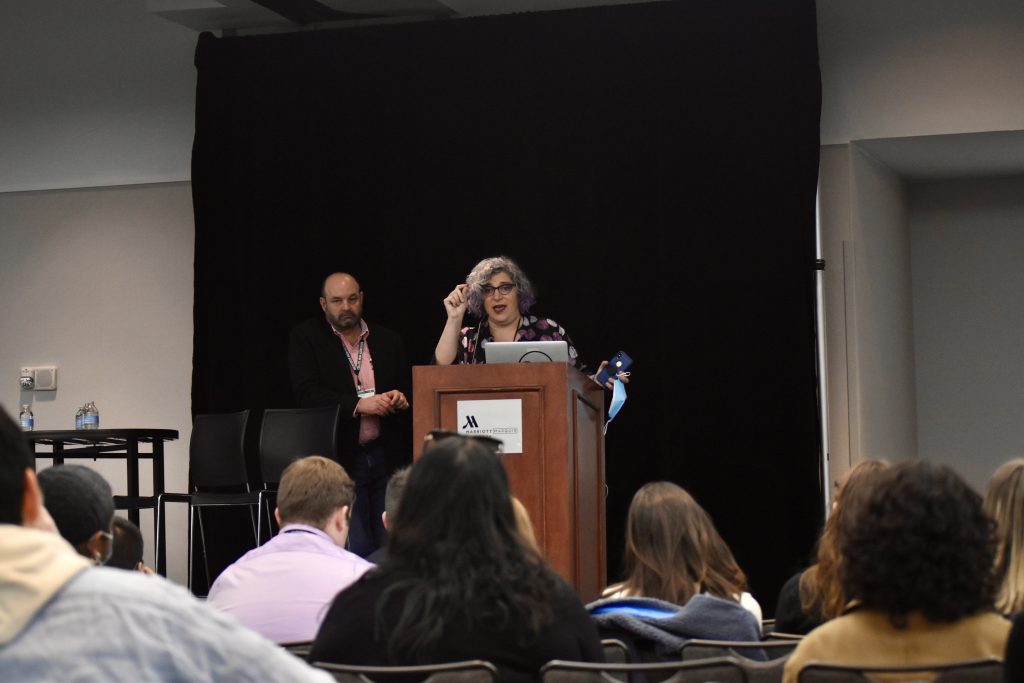
Hadar Harris discusses reporting on the #MeToo movement at a workshop at the College Media Association Spring 2022 Convention Friday March 11, 2022.
